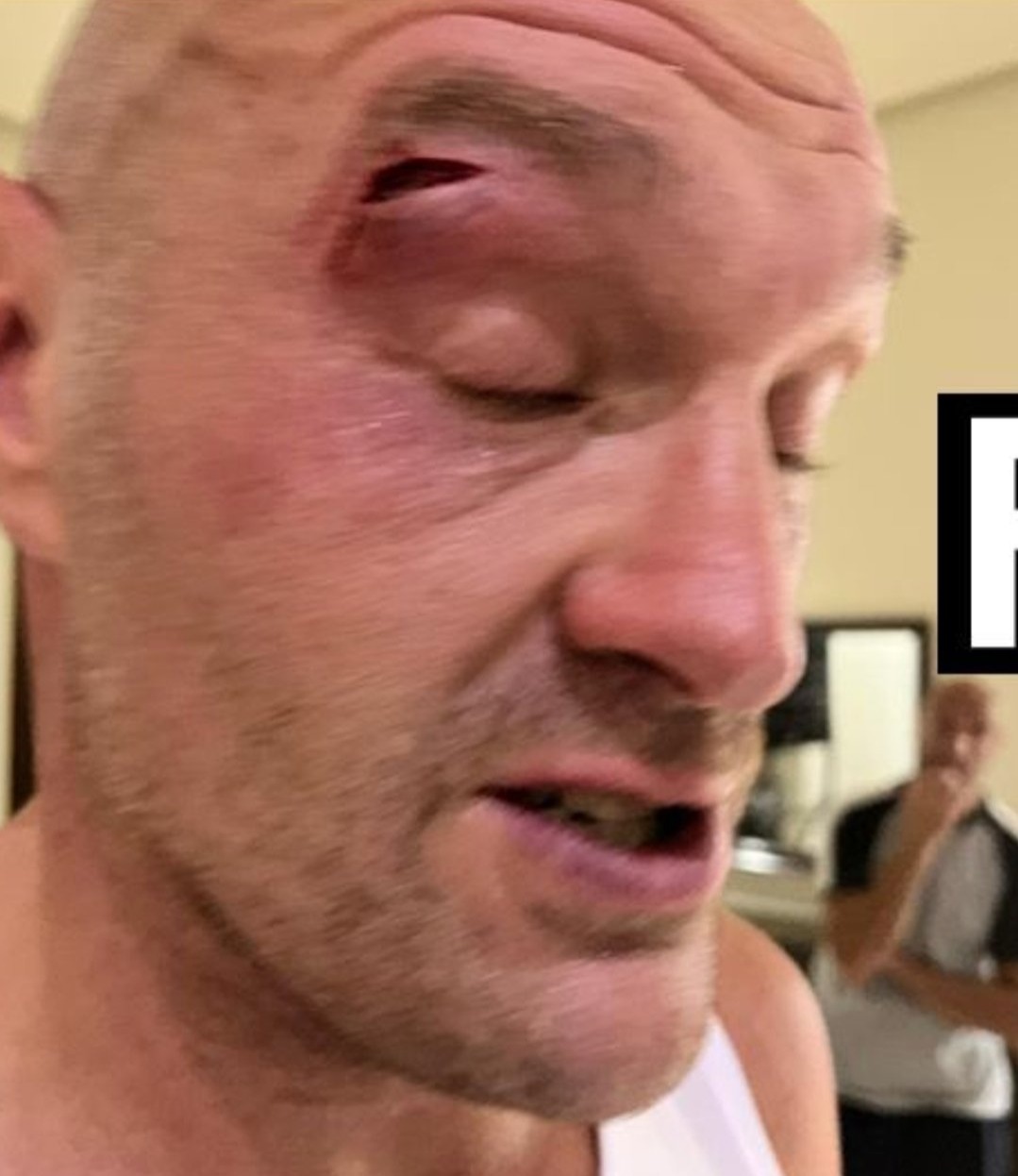Protective Measures
Tyson Fury's cutman, Jorge Capetillo, has shared that the Gypsy King will need to wear headgear during sparring sessions to safeguard the cut above his eye ahead of the fight with Oleksandr Usyk.
Previous Injury
The 35-year-old boxer sustained a severe cut above his left eye during a sparring session earlier this year, leading to the postponement of his much-anticipated bout with Usyk.
Capetillo's Strategy
Capetillo emphasized the importance of Fury focusing on his reach and timing during training to prevent Usyk from gaining an advantage in the fight.
Recovery Timeline
Despite the possibility of the cut reopening, Capetillo remains optimistic that with proper treatment, Fury will be prepared for the May 18 match. Light sparring sessions with appropriate headgear are part of the recovery plan.

Potential Achievements
If Fury emerges victorious against Usyk, he could become the first undisputed heavyweight champion since 1999. Speculations about a rematch with Usyk or a potential fight with Anthony Joshua have also surfaced.
Frequently Asked Questions
How does a boxer maintain weight and weight class?
Boxers manage their weight by adhering to strict diets and precise training regimens. Dieticians work with boxers to create a diet that allows them to achieve their weight-class target without sacrificing energy and nutrition. It is important to maintain a regular exercise routine and check your weight regularly, especially as you approach a fight. Weight management, when done wrong, can lead health issues and poor performance.
What are the main components of a professional boxer’s routine?
A boxer’s training program is typically composed of a few key components. These include technical skills development, tactics drills, strength-and-conditioning, sparring, as well as mental preparation. Tactics drills help develop fighting strategies, while technique-focused exercises improve defensive maneuvers and punch accuracy. Sparring allows for practical combat experience. Conditioning exercises boost athleticism. Mental training is aimed at building resilience, confidence and focus.
What are the risks associated with professional boxing?
Professional boxing is a contact sport and as such, it carries risks. There are acute injuries, including cuts, bruises and broken bones. Also, there may be chronic conditions, like concussions syndromes or neurological disorders, that can develop from repeated impacts. The risks can be reduced with proper training, safety devices, and adhering to boxing rules, but never completely eliminated. Understanding and accepting these risks is a critical part of choosing to box professionally.
What roles do managers and promoters play in a boxer’s professional career?
Promoters and managers are crucial to a professional boxer’s career. Managers are responsible for guiding the boxer’s career path, negotiating contracts, and handling the business affairs of the boxer. They also provide support in selecting the right fights and looking after the boxer’s interests. The promoters focus more on organizing events, marketing fights and attracting sponsors and audience attention. This increases a boxer’s public profile and earnings potential.
How do you progress from amateur to Professional Boxing?
Transitioning from amateur to professional boxing entails a significant step up in competition, training intensity, and mental preparation. An amateur boxer is required to establish a record of success, usually by honing their skills at local and national contests. To be able to secure professional bouts, it is important to have a professional license in boxing and align yourself with experienced managers or trainers.
What equipment do you need to get started in professional Boxing?
For anyone starting in professional boxing, the essential equipment includes boxing gloves, hand wraps, a mouthguard, headgear (for sparring), and proper footwear. Training aids such as heavy bags, speed bags, double-end bags, and other training tools are crucial for technical workouts. Quality equipment is important for safety and durability. Subpar gear increases the risk of injury.
How long does it take to become an elite boxer?
The time taken to become an elite boxer is variable. It depends on a person’s ability, adaptability, and quality of training. In general, it takes several years of training and experience as an amateur to be ready for the professional world. However, some exceptional talents might advance more quickly, while others may need more time to develop.
Statistics
- Less than 10% of professional boxers are undefeated throughout their career, highlighting the sport’s competitive nature.
- Professional boxers typically train 4 to 6 hours per day, 5 to 6 days a week, depending on their fight schedule.
- Research shows that a boxer’s reaction time is typically under 0.25 seconds, honed through repetitive drills and sparring.
- As per recent surveys, only about 17% of professional boxers reach a title shot opportunity in their careers.
- Statistical data indicates that there has been a 15% increase in the number of professional boxing gyms over the last decade.
- Nutrition experts emphasize that over 70% of a boxer’s diet should focus on carbohydrates and proteins for energy and recovery.
- Around 60% of professional boxers supplement their income with other activities or jobs, due to variability in fight earnings.
External Links
titleboxing.com
sweetsciencefitness.com
boxingforum24.com
expertboxing.com
ibhof.com
usaboxing.org
boxingscene.com
How To
How to Prepare Mentally for a Boxing Match
The preparation for a boxing contest goes beyond physical fitness; mental toughness plays a key role. Engage in regular visualization exercises, visualizing yourself achieving success in the boxing ring. Establish a mental ritual before the fight that focuses and calms your mind. Mental rehearsals can reinforce a game plan. You need to be confident, but also realistic. Meditation and breathing exercises will help you manage anxiety and stress before the fight.

